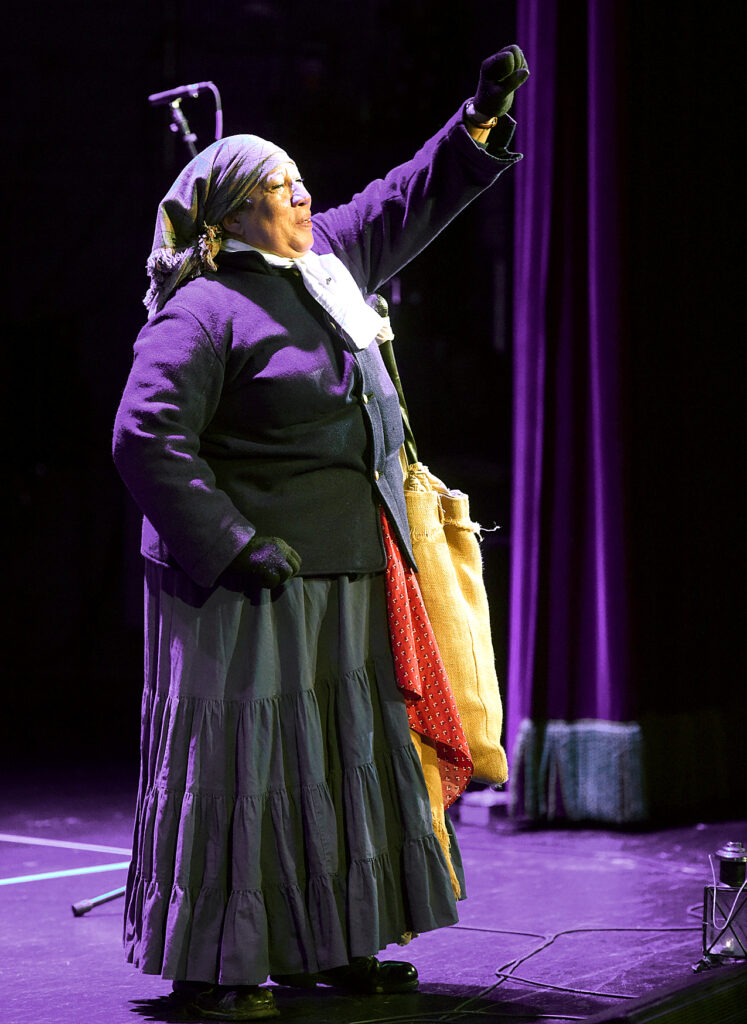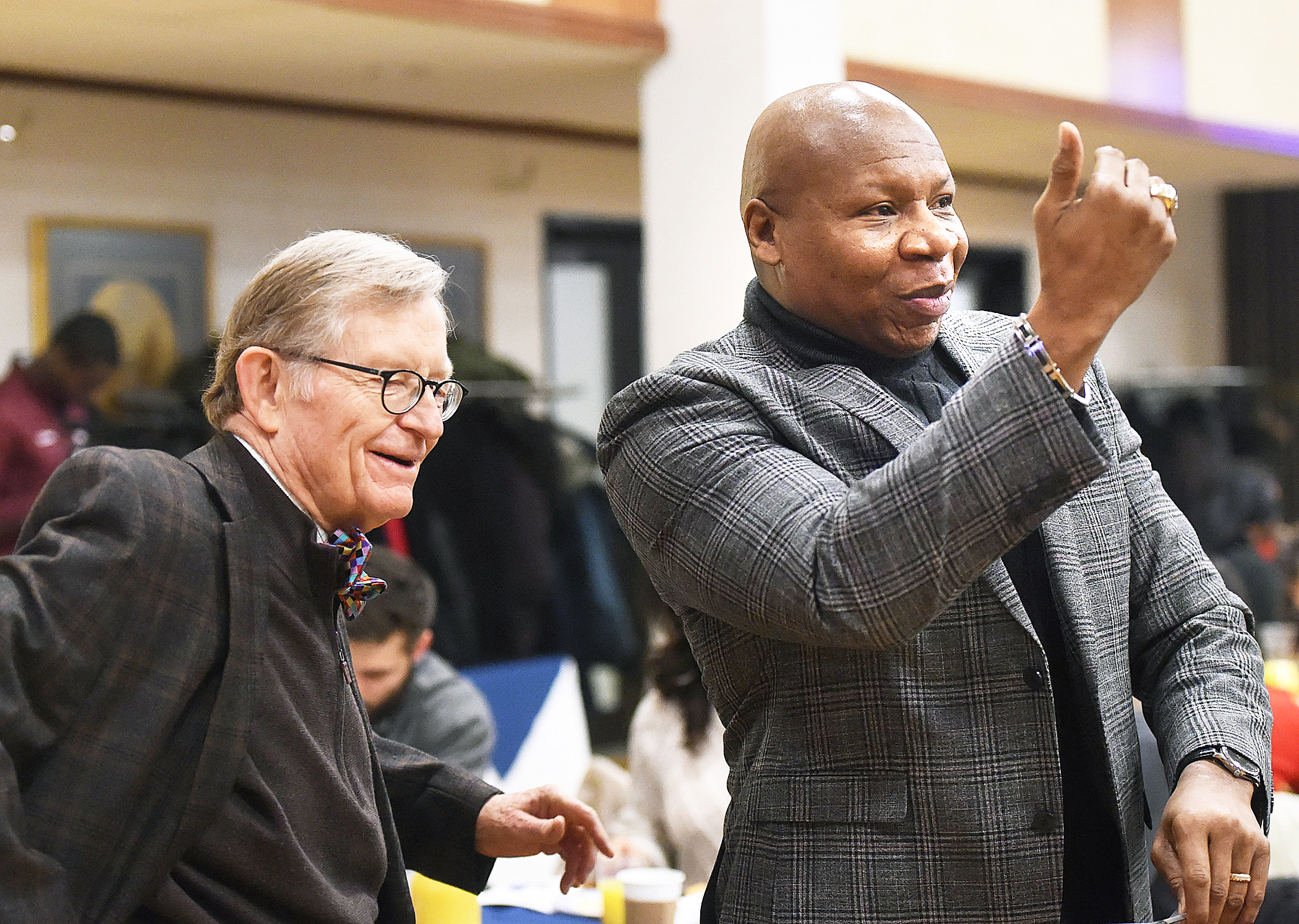MORGANTOWN — Mahalia Jackson, the legendary gospel singer, wasn’t just in possession of a big voice.
She also had an equally abundant capacity for social justice.
On Aug. 28, 1963, on the steps of the Lincoln Memorial in Washington, D.C., she used both to redirect Martin Luther King Jr., as he addressed the masses that day.
“Masses,” was right.
More than 250,000 had gathered on the mall in the nation’s capital, in front of the marble edifice of a president who would die for the cause of trying to mend a broken country.
Just five years later, King would also be dead from an assassin’s bullet in attempt of the same, but on this day, he was alive, and in the moment.
King would seize that moment.
Good thing, too. Miss Mahalia wasn’t letting up.
Standing behind him, her voice pealed like a church bell on Sunday morning.
It would have been impossible for anyone else to hear in the tumult, but no matter: King did.
“Tell them about the dream, Martin! Tell them about the dream!”
King didn’t always raise the rafters when he talked to people — but he was always about raising the collective consciousness.
In small gatherings, he had taken to telling congregants and committee men alike of a simple dream he had.
Got him through a lot of days, he said.
He would send up a wishful image of little black kids and little white kids being just that: Kids, getting along, on the playground.
Jackson: “The dream, Martin! Tell ’em!”
Which he did.
None of what followed was written down.
He broke from his words that were on the prepared page to improvise a tone-poem to unconditional love, speaking words from his heart and his gut.
King started slowly in the second act of his speech, but once he got going, he was building steam like a metaphorical train on the Underground Railroad.
“ … And so even though we face the difficulties of today and tomorrow, I still have a dream. It is a dream deeply rooted in the American dream … ”
You know the rest.
Out on that mall, among those masses, Al Anderson let his breath out in one slow whoosh, followed by one word, in response.
“Man.”
MLK Day in Morgantown
Anderson said a variant of the same Monday afternoon as he stood on the stage of the Metropolitan Theatre in downtown Morgantown.
It was the day of the national holiday honoring King, whose sermons of racial equality were silenced by a single bullet that found him on that balcony at the Lorraine Motel in Memphis in 1968.
Anderson, an activist and organizer himself, is usually at the center of the celebration at the Met, which is sponsored annually by the Community Coalition for Social Justice and Main Street Morgantown.
In the 1970s, he came back to the Osage coal camp where he was raised because his family here needed him.
He left Osage and West Virginia in the late 1950s, to sing soul and rock ‘n’ roll on bandstands from Hagerstown, Md., to Hollywood, Calif.
Anderson recorded briefly with Billy Ward and his Dominoes, the nationally known doo-wop group, and other bands he fronted opened for Bo Diddley, the Isley Brothers and other top acts of the day.
When he wasn’t making music, he was managing retail stores in Washington — a black man in a position of authority in a then-White Man’s World.
He knew King had something to say when the city basically shut down for his appearance.
The old soul singer smiled as he remembered.
“Nobody was telling you that you weren’t taking the day off,” he said, in a backbeat rasp, sounding like a Stax Volt 45 on a long-ago jukebox.
“That was understood. Dr. King was in town, and we were going to go hear what he had to say.”
Of blessings and dreams
At the Met on Monday, people continued to carry King’s words and King’s Dream.
There were official greetings by Morgantown Mayor Bill Kawecki and a capsule of the last 20 years of the Community Coalition for Social Justice by Sheila Rye, a charter member.
The Al Anderson and Friends musical group raised the rafters with soul-stirring gospel, and then, after that, the subjects of King’s dream took over.
Students Olivia Tuel and Demarcus Vandy reprised the essays they wrote and delivered the day before at St. Paul AME Church on Beechurst Avenue.

Performer Jeremy Thomas did a dramatic exploration of the childhood of Frederick Douglass, the former slave turned author and abolitionist.
Ilene Evans had a similar turn in her portrayal of Harriet Tubman — who also escaped slavery in her youth, to help countless others do the same on the Underground Railroad.
The choir of Cheat Lake Elementary School brought it home with songs about King, and Tubman (using flashlights to suggest the constellations which were followed to freedom on said Railroad.)
And the Met stage was positively crowded for “We Shall Overcome” and “Lift Every Voice and Sing” — which never fails to move Anderson, he said.
Especially, he said, when those voices lifted belong to impressionable school children.
In an America that continues to carry the burdensome weights of racial tension and political divisiveness, such sonic properties show him, he said, that the Dream is still peeking through.
No matter what.
“When we get kids up here,” he said, nodding toward the choir, “that’s how I know we’re doing things right. It’s a blessing.”




